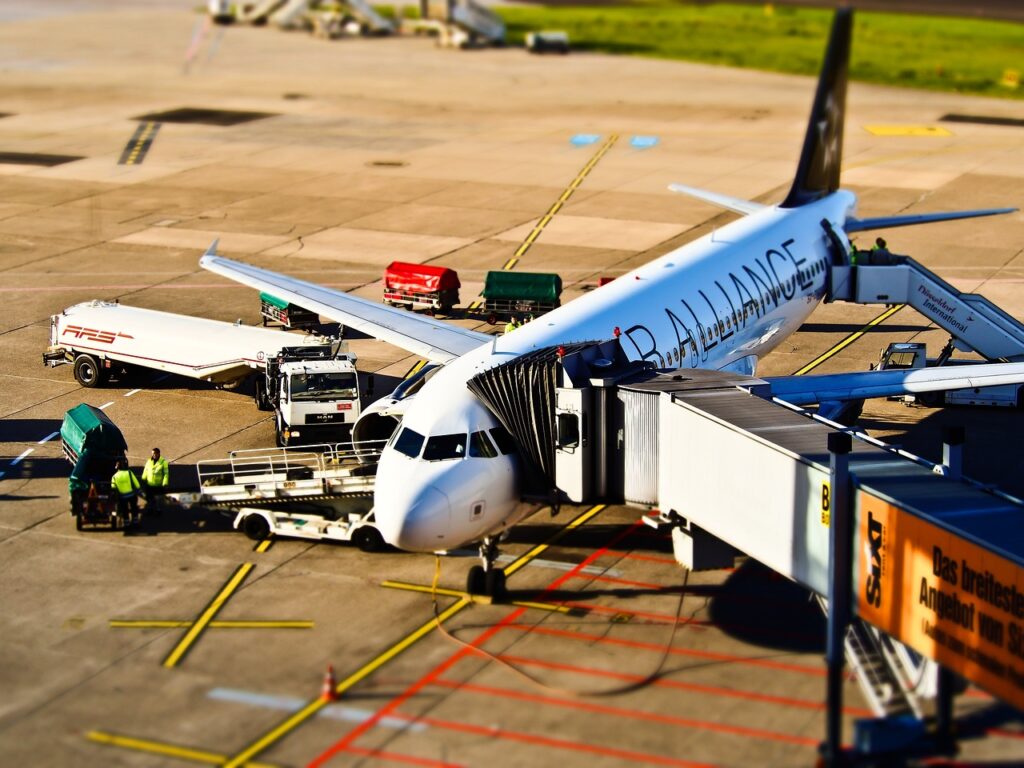In recent years, the aviation industry has faced a growing challenge with the rise of unruly passengers. These incidents not only disrupt flights but also pose significant safety risks to both passengers and crew members. A recent event involving Shari Ann Chinnis Indianapolis on a Delta Connection flight from Indianapolis to New York serves as a stark reminder of this ongoing issue.
The Shari Ann Chinnis Indianapolis Incident: A Brief Overview
Shari Ann Chinnis Indianapolis, a passenger on a Delta Connection flight, was arrested after causing a major disruption onboard. The flight, which was scheduled to depart from Indianapolis to New York, faced delays and turmoil due to Chinnis’ behavior. The incident began when Chinnis was asked to stow her bags properly for takeoff. Instead of complying with the crew’s requests, she became verbally argumentative. Despite multiple requests from the flight crew, Chinnis refused to cooperate, leading to an escalation in the situation.
The crew, following standard safety protocols, decided that Chinnis needed to be removed from the plane to ensure the safety and comfort of the other passengers. However, even after being removed, the situation did not deescalate. Chinnis and her daughter continued to cause a scene, which ultimately led to her arrest for disorderly conduct. As a result of this incident, the flight arrived in New York approximately an hour and a half later than planned, inconveniencing many passengers.
Unruly Passenger Behavior: A Growing Concern
Incidents like Shari Ann Chinnis Indianapolis have become a significant concern for the aviation industry worldwide, reflecting a growing trend that has prompted increased attention from airlines, regulatory bodies, and the public. These incidents range from non-compliance with safety regulations, such as refusing to wear a seatbelt, to more severe behaviors, including verbal and physical assaults on crew members or other passengers.

Rising Numbers and Contributing Factors:
In recent years, the frequency of unruly passenger incidents like Shari Ann Chinnis Indianapolis has seen a noticeable increase. For example, the Federal Aviation Administration (FAA) in the United States reported a significant spike in such incidents during the COVID-19 pandemic. In 2021 alone, there were over 5,900 reported cases, a sharp rise compared to previous years. The introduction of mask mandates during the pandemic was a major contributing factor, with many incidents arising from passengers refusing to comply with these health measures. However, the trend has continued even as these mandates were lifted, indicating that other factors, such as increased stress, alcohol consumption, and crowded flights, also play a role.
Types of Incidents: Unruly behavior can manifest in various forms, ranging from relatively minor infractions to serious disruptions. Common types of incidents include:
- Non-compliance with crew instructions: This can involve refusing to fasten seatbelts, not stowing luggage properly, or ignoring no-smoking signs.
- Verbal abuse: Passengers may verbally harass or threaten crew members or other passengers, often escalating into more aggressive behavior.
- Physical assault: In extreme cases, passengers may physically attack others on the flight, leading to serious safety concerns.
- Interference with flight operations: Some passengers have attempted to enter the cockpit or tamper with emergency exits, posing a direct threat to the safety of the flight.
The Impact on Airline Operations and Passenger Experience
The disruptive behavior of passengers like Shari Ann Chinnis Indianapolis has far-reaching consequences. First and foremost, it jeopardizes the safety of the flight. Flight attendants and crew members are trained to handle a variety of situations, but when a passenger refuses to comply with basic safety instructions, it creates a volatile environment that can quickly escalate.

Moreover, these incidents cause significant delays and inconvenience for other passengers. In the case of Chinnis, the flight arrived in New York an hour and a half later than scheduled, disrupting the plans of many passengers. Delays can also lead to missed connections, additional costs, and a generally unpleasant travel experience.
From an operational perspective, airlines incur additional costs due to these incidents. Delays can result in increased fuel consumption, the need for additional staffing, and potential compensation for affected passengers. In extreme cases, unruly behavior may even lead to emergency landings, which are costly and disruptive to the airline’s schedule.
Legal and Regulatory Responses
In response to the rise in unruly passenger incidents, the FAA and other regulatory bodies have taken steps to address the issue. The FAA has implemented stricter penalties for disruptive behavior, including hefty fines and potential bans from flying. In the case of Shari Ann Chinnis Indianapolis, her arrest for disorderly conduct is a reflection of the seriousness with which authorities are now treating such behavior.

Airlines themselves have also revised their policies to better manage and prevent these incidents. Some have implemented stricter screening processes, while others have empowered crew members with more authority to remove disruptive passengers. There is also a growing emphasis on training for crew members to handle conflict and de-escalation techniques effectively.
Conclusion: Navigating the Challenges of Modern Air Travel
The case of Shari Ann Chinnis Indianapolis on the Delta Connection flight is a microcosm of a larger issue facing the aviation industry. As more people return to air travel post-pandemic, it is crucial for both passengers and airlines to adapt to the new realities of flying. Passengers must understand the importance of following safety protocols and respecting the crew, while airlines and regulatory bodies continue to enforce rules that ensure the safety and comfort of all travelers.
As the aviation industry navigates these challenges, the hope is that incidents like the one involving Chinnis become less frequent. Through a combination of stricter enforcement, better passenger education, and a focus on de-escalation, the industry can work towards creating a safer and more pleasant travel experience for everyone.
